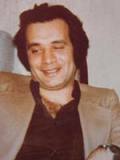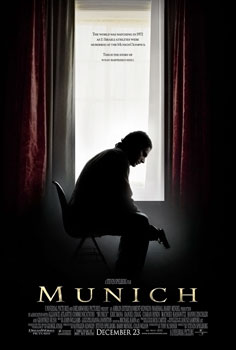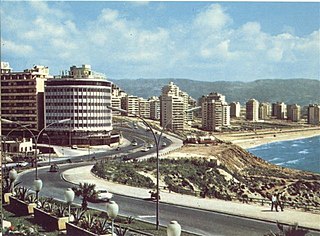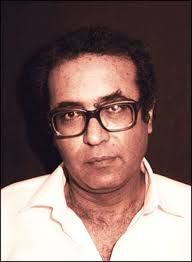Related Research Articles

The Munich massacre was a terrorist attack carried out during the 1972 Summer Olympics in Munich, West Germany, by eight members of the Palestinian militant organization Black September, who infiltrated the Olympic Village, killed two members of the Israeli Olympic team, and took nine others hostage. Black September called the operation "Iqrit and Biram", after two Palestinian Christian villages whose inhabitants were expelled by the Israel Defense Forces (IDF) during the 1948 Arab–Israeli War. The Black September commander was Luttif Afif, who was also their negotiator. West German neo-Nazis gave the group logistical assistance.

Mohammed Abdel Rahman Abdel Raouf Arafat al-Qudwa al-Husseini, popularly known as Yasser Arafat or by his kunya Abu Ammar, was a Palestinian political leader. He was Chairman of the Palestine Liberation Organization (PLO) from 1969 to 2004 and President of the Palestinian National Authority (PNA) from 1994 to 2004. Ideologically an Arab nationalist and a socialist, he was a founding member of the Fatah political party, which he led from 1959 until 2004.
The Black September Organization (BSO) was a Palestinian militant organization founded in 1970. Besides other actions, the group was responsible for the assassination of the Jordanian Prime Minister Wasfi Tal, and the Munich massacre, in which eleven Israeli athletes and officials were kidnapped and killed, as well as a West German policeman losing his life, during the 1972 Summer Olympics in Munich, their most publicized event. These attacks led to the creation or specialization of permanent counter-terrorism forces in many European countries.

Ali Hassan Salameh was a Palestinian militant who was the chief of operations for Black September and founder of Force 17. He was assassinated in January 1979 as part of an assassination campaign by Mossad.

Khalil Ibrahim al-Wazir was a Palestinian leader and co-founder of the nationalist party Fatah. As a top aide of Palestine Liberation Organization (PLO) Chairman Yasser Arafat, al-Wazir had considerable influence in Fatah's military activities, eventually becoming the commander of Fatah's armed wing al-Assifa.

The 1973 Israeli raid in Lebanon took place on the night of April 9 and early morning of April 10, 1973, when Israeli army special forces units attacked several Palestine Liberation Organization (PLO) targets in Beirut and Sidon, Lebanon. The operation is generally considered to have been part of Operation Wrath of God, Israel's retaliation for the Munich massacre at the Summer Olympics in 1972.

Munich is a 2005 epic historical drama film produced and directed by Steven Spielberg, co-written by Tony Kushner and Eric Roth. It is based on the 1984 book Vengeance by George Jonas, an account of Mossad assassinations following the Munich massacre.
Operation Bayonet was a covert operation directed by Mossad to assassinate individuals they accused of being involved in the 1972 Munich massacre. The targets were members of the Palestinian armed militant group Black September and operatives of the Palestine Liberation Organization (PLO). Authorized by Israeli Prime Minister Golda Meir in the autumn of 1972, the operation is believed to have continued for over twenty years. While Mossad killed several prominent Palestinians during the operation, they never managed to kill the mastermind behind Munich, namely Abu Daoud.

Kamal Butros Nasser was a Palestinian political leader, writer and poet. In the early 1970s, Nasser was the spokesman of the Palestinian Liberation Organization.
Mohammad Daoud Oudeh, commonly known by his nom de guerre Abu Daoud or Abu Dawud was a Palestinian terrorist, teacher and lawyer known as the planner, architect and mastermind of the Munich massacre. He served in a number of commanding functions in Fatah's armed units in Lebanon and Jordan.
Atef Ibrahim Mohammad Adwan, also spelled Odwan, Udwan or Edwan, is the Minister of Refugees in the Palestinian Authority, having been named to this position following the Hamas victory in the 2006 Palestinian legislative election, when he was elected from the Northern Gaza District.
Muhammad Youssef Al-Najjar, commonly known as Abu Youssef, was a Palestinian militant who was assassinated by Israel over alleged involvement in the 1972 Munich massacre.

Ramlet al-Baida is a public beach in Beirut, Lebanon. The beach is situated along the southern end of the Corniche Beirut promenade where Avenue General de Gaulle meets Avenue Rafic Hariri and ends at Rue Venezuela. Despite the beach's location in Moussaitbeh, close to the upscale district of Ras Beirut, the beach is popular with a predominantly male clientele from Beirut's low-income southern suburbs. The beach is also a popular cruising area.
Erika Chambers, also known as Agent Penelope, is a British-Israeli Mossad operative behind the action on 22 January 1979 that killed Ali Hassan Salameh, leader of Black September and lead plotter behind the Munich massacre.
On 8 September 1972, Israeli planes bombed ten Palestine Liberation Organization (PLO) bases in Syria and Lebanon as a response to the Munich massacre that took place on 6 September, perpetrated by Black September, a Palestinian terrorist organization active since 1970. Estimates of the number and identity of casualties vary widely, with several sources giving a figure as high as 200 militants and 11 Lebanese civilians. Seven bases were attacked in Syria and three in Lebanon. A short dogfight between Israeli and Syrian fighters resulted in three Syrian jets being downed. The main rail link between Syria and Beirut was cut and targets in Latakia were also attacked.

The Institute for Intelligence and Special Operations, popularly known as Mossad, is the national intelligence agency of the State of Israel. It is one of the main entities in the Israeli Intelligence Community, along with Aman and Shin Bet.
Events in the year 1973 in Israel.
Events in the year 1972 in Israel.

Majid Abu Sharar was a Palestinian writer, activist, journalist, and politician. He wrote Bitter Bread. He was assassinated on 9 October 1981 after a bomb was planted by Mossad agents in his hotel in Rome.
References
- ↑ Telephone Interview with a family member on 14 October 2016
- ↑ Lam, Amira (6 September 2015). "Our woman in Beirut". Ynetnews. Retrieved 12 November 2016.
- ↑ "Barbara". Zochrot. Retrieved 12 November 2016.
- ↑ Telephone interview with a family member 14 October 2016
- ↑ Filiu, Jean-Pierre (2014). Gaza, a history. London: C.Hurst&co. ISBN 978-1-84904-401-1.
- ↑ Sayigh, Yezid (1997). Armed struggle and the search for state, The Palestinian National Movement. Clarendon Press. p. 80 – via ebook.
- ↑ Klein, Aoron J (2007). Striking Back: The 1972 Munich Olympic. Random House Trade – via Kindle version.
- ↑ Watad, Nidal (8 September 2015). "Mossad agent reveals details of historic PLO Beirut assassination". TheNewArab. Retrieved 12 November 2016.
- ↑ Pedahzur, Ami (2009). The Israeli Secret Services and The struggle against terrorism. Columbia University Press. ISBN 978-0-231-51161-2 – via kindle version.
- ↑ Dawood, Mohammad (1999). Palestine, From Jerusalem to Munich. Dar Al naher. p. 452. ISBN 2842891384 – via Arabic version.
- ↑ Bird, Kai (2014). The good spy. The life and death of Robert Ames . Crown Publisher. ISBN 978-0-307-88975-1 – via Kindle version.
- ↑ Pedahzur, Ami (2009). The Israeli Secret Services and Counter Terrorism. Columbia University Press. p. 44 – via Kindle version.
- ↑ Rashid Khalidi (2014). Under Siege. PLO Decisionmaking During the 1982 War. New York: Columbia University Press. p. 23. doi:10.7312/khal16668. ISBN 9780231535953.
- ↑ Al-Hout, Shafiq (2011). My life in the PLO. Plutopress. p. 107. ISBN 9781783714230 – via Kindle version.
- ↑ Khalidi, Rashid (2013). Under Siege PLO decision making during the 1982 war. Columbia University Press. p. 23 – via ebook.